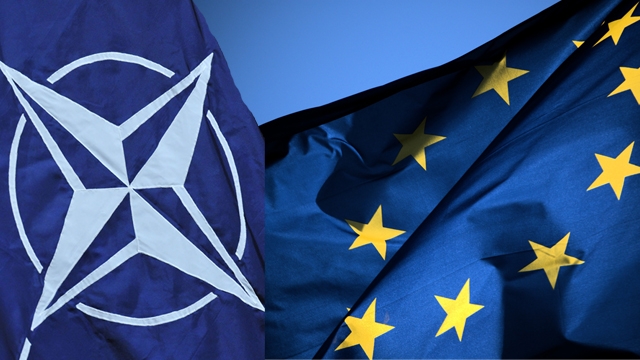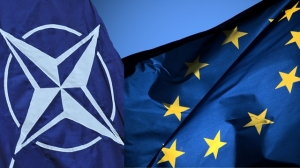Poll Finds Majority of Georgians Want to Join NATO, EU
TBILISI – According to a new survey released by the National Democratic Institute on Monday, a majority of Georgian citizens want the country to continue on its path towards joining the NATO military alliance and the European Union.
The poll, carried out from February 23-March 14, found that of the 3,900 respondents, 68 per cent said NATO membership and is essential for Georgia, and 77 per cent in favour of joining the EU.
A majority of respondents (23 per cent) also said that Euro-Atlantic integration best ensures the country’s national security.
When asked if Georgia would benefit both economically and in terms of security, a solid majority of 54 per cent of the respondents agreed that closer relations with the West would be a boon for Georgia’s sagging economy and best manage the on going security tensions over the Russian-backed breakaway regions of Abkhazia and South Ossetia.
Related coverage: Georgians Continue to Support NATO and EU Membership, Worry About Social Poverty
Euro-Atlantic integration scored high with those polled, with 64 per cent saying Georgia’s foreign policy should be pro-Western.
An overwhelming number of respondents (62 per cent) agreed that EU membership should be the stated foreign policy goal of the government.
The public’s support for Western integration appears to have recovered from a low point in August 2015, when opinion polls showed backing for both NATO and EU accession had steadily weakened to 46 per cent, with 30 per cent of those polled advocating closer ties with Russia.
Only 19 per cent of those polled called for closer relations with Russia and its Eurasian Customs Union, with the highest support coming from Georgia’s ethnic minority communities.
Related coverage: 44% Georgians Say Russia’s Influence Has Grown Significantly since 2012
These groups are generally known to have poor Georgian language skills and thus rely solely on Russian news sources like Sputnik, LifeNews and RT (formerly Russia Today), all of which have been accused of broadcasting Kremlin-sanctioned propaganda.
National respondents listed Russia and its allies (49 per cent) and ISIS (8 per cent) as the country’s greatest security threats.
In what could be a precursor to the way many Georgians will vote in the upcoming October parliamentary elections, 39 per cent of those polled said the country is going in the wrong direction and 66 per cent rated the country’s economy as either ‘bad’ or ‘very bad’.
Amongst those that gave a decisive thumbs down to the current economic situated, a staggering 81 per cent blamed the ruling Georgian Dream coalition for their handing of the national economy.
By Nicholas Waller












